Almost half of our alumni stay in the West Midlands after graduation. So what impact do they have on the area they love?
The University makes a huge contribution to the local community and economy, including supporting one in 50 jobs. In 2017, around 8,000 students volunteered to help local communities through the Guild.
But perhaps some of the deepest impact is made by alumni. For example, each year more than 1,500 Birmingham alumni join the region's healthcare sector, saving and improving lives across the West Midlands. And you don't need to be head of an organisation to make a big difference – alumni on the front line are changing the lives of so many.
We met with six alumni who are having a huge impact socially, culturally and economically, from community campaigning to leading a revolution in ethical jewellery.
How six of our many graduates have helped shape our region
-
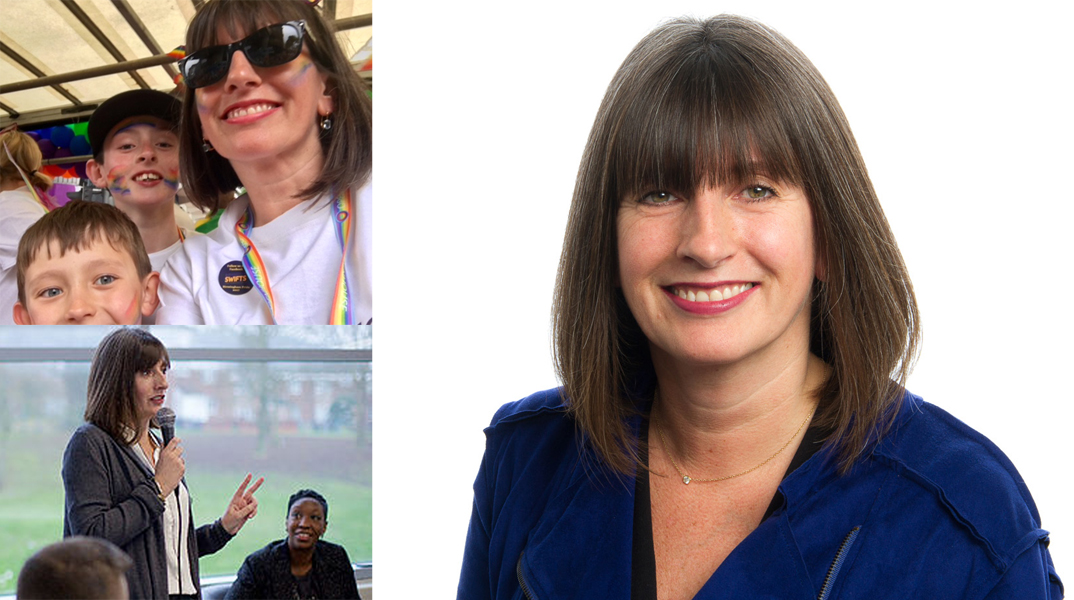
Corporate responsibility: Lorna Gavin, Gowling WLG UK
Finding and keeping a job can be impossible if you don't even have a place to sleep. Lorna Gavin (LLB, 1990) leads Gowling WLG UK's Corporate Responsibility programme, addressing many social issues rooted in poverty.
Lorna says: 'Our biggest impact has been through helping homeless people find work. It's a horrible Catch-22 – if you don't have a home, you can't get a job. These are often people with degrees and valuable skills, but some bad luck has left them without a roof over their heads - family breakdown, mental health issues, loss of employment are key factors. Our Ready for Work programme has broken the cycle for around 150 people to date, by providing confidence building workshops, interview practice and crucially work experience, helping them find their own worth and confidence again.
'The key has been the power of collaboration. One of our projects began over a fish-finger sandwich with a few kindred spirits in the city, then flourished into a volunteering challenge to fellow professional services companies, investigating and meeting the hidden needs of the wonderful city they work in. That has led to the creation of a standalone charity, Suited for Success giving interview clothing and employability support to people living in poverty, who were desperate to work.'
Reflecting on her time at the University, Lorna says: 'Long hours studying in the Harding Law Library underneath Old Joe, then practical work experience in my second year, laid all the foundations for my future - working hard to make my own luck, so I could share it with others.' -
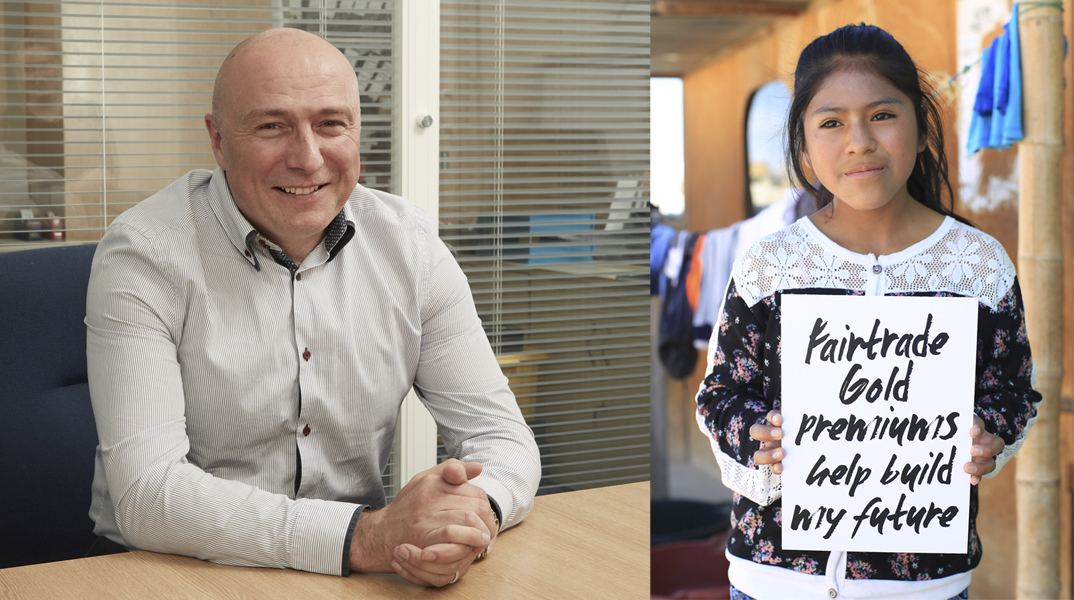
Ethical impact: Gary Wroe, National Association of Jewellers
When you buy a coffee, you can often trace the beans right back to the farms to be sure they are Fairtrade. So why can't you be sure the rings on your fingers are ethical too? That what alumnus Gary Wroe (MBA, 2005) set out to make happen.
Gary started as an apprentice in Birmingham's world-famous Jewellery Quarter. Determination and 120-hour weeks saw his climb to Managing Director for Merrell Casting and Hockley Mint.
Yet having left school with just one O-level, Gary was conscious that he had no formal management training. He chose the University of Birmingham's MBA to push himself as far as he could go.
Now Gary wants to lead a revolution in ethical stones and metals. 'Five years ago I decided to become an ambassador for Fairtrade. I visited a non-certified mine in Tanzania to learn why it was so important, seeing young children working in dangerous conditions, breaking up rocks.
'During my MBA, I learned that as a leader, it's your role to make positive change. By steering your company ethically, you can influence a whole sector. Now we're already working with 30 shops across the UK, providing the training and support they need to guarantee you can be proud of every aspect of your jewellery.' -
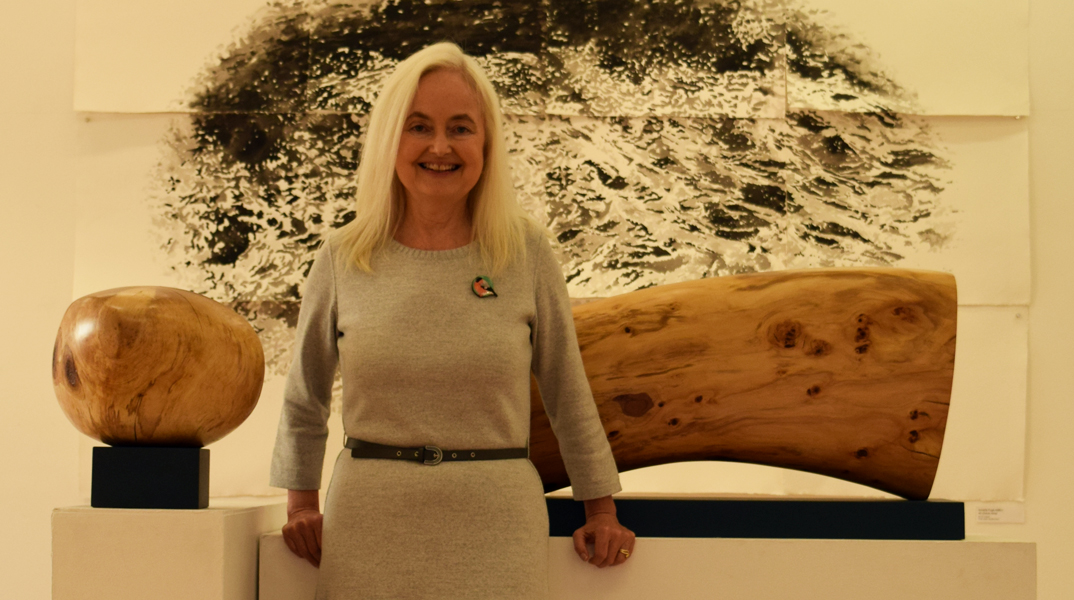
Cultural impact: Dr Marie Considine, Royal Birmingham Society of Artists (RBSA)
Is art for everybody? As Gallery Director of the RBSA, Dr Marie Considine (PhD History of Art, 2012) strives to bring the contemporary visual arts to everyone in Birmingham and to help others get started in the arts.
'Art can give such enjoyment and inspire us through difficulties, so we want it to reach everyone. Over the last few years we have been collaborating with Sense, a national charity that supports people who have complex communication needs and helps them to enjoy more independent lives. Our artists and participants from Sense together created a cutting-edge exhibition "Connecting Creatively" that is meant to be touched – allowing the exhibition to be experienced in a new way.'
Marie is actively sharing this research into creating inclusive art and developing multi-sensory exhibitions with other organisations.
The RBSA also helps volunteers and interns build an arts career, including many from the University. Marie says: 'Since I was a teenager I'd always wanted to work in the visual arts, and I've been lucky enough to achieve that dream. Through a variety of volunteer and paid roles we in turn help students and graduates prepare for a job in the arts and introduce the wide range of roles available in the creative industries. Thanks to paid internships created by donors to the University, students can develop practical experience that helps turn their passion into a job.
'University is a great forum for discovering what gives you purpose. Studying at Birmingham I learned to make my own To Do list in life, not to wait for others to make it for me. And I learned how to think through challenges creatively, an approach relevant in every sector.' -
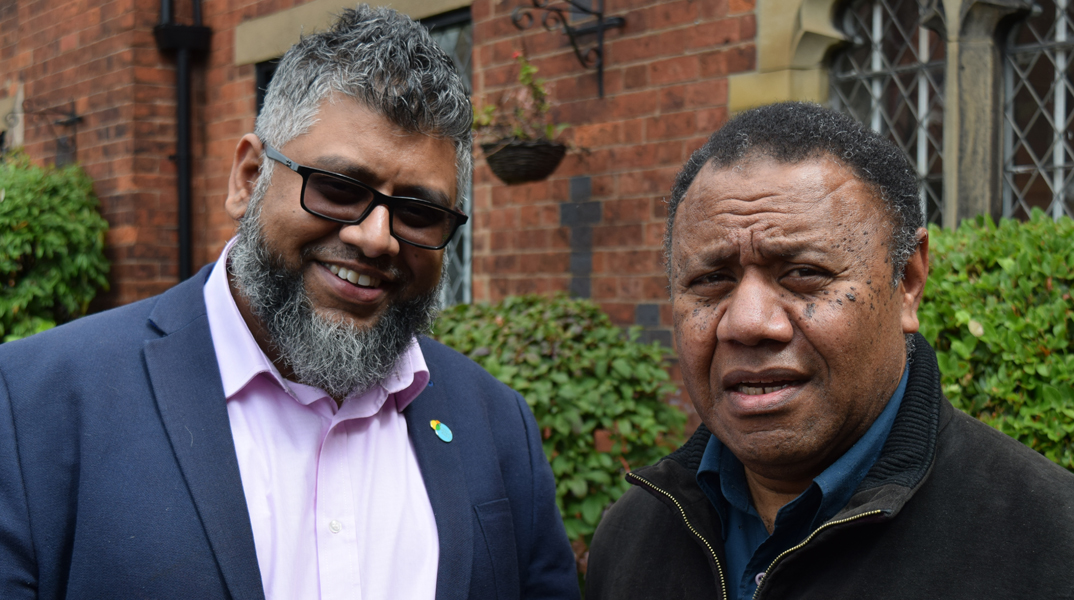
Social impact: Dr Mosese Dakunivosa and Saidul Haque, Citizens UK
How can you create real change where you live? Dr Mosese Dakunivosa (PhD Public Policy, 2009) and Saidul Haque Saeed (BA Sociology/Social Policy, 2001; MSc Public Service Commissioning, 2012) of Citizens UK are using the insights they gained from their courses at the University to help local communities act together.
Saeed says: 'I did social policy and sociology at the College of Social Sciences (COSS) in the late 90s and when I graduated, I decided I didn't want to move away. I grew up in this area. I learned so much in my amazing degree and I wanted to apply it in Birmingham.'
Working with 1,500 local people, their successes include getting access to specialist mental health services for 16-17 year olds, and securing the backing of elected and business leaders to persuade more of the city's employers to pay the real Living Wage.
For those with the passion to take it to the next level, Saeed and Mosese train people in the art of broad-based community organising, to create a sustainable generation of local campaigners. Mosese says: 'We help local leaders find their own voice. The issues belong to all of us; jobs, schools, kids, transport and more.' -
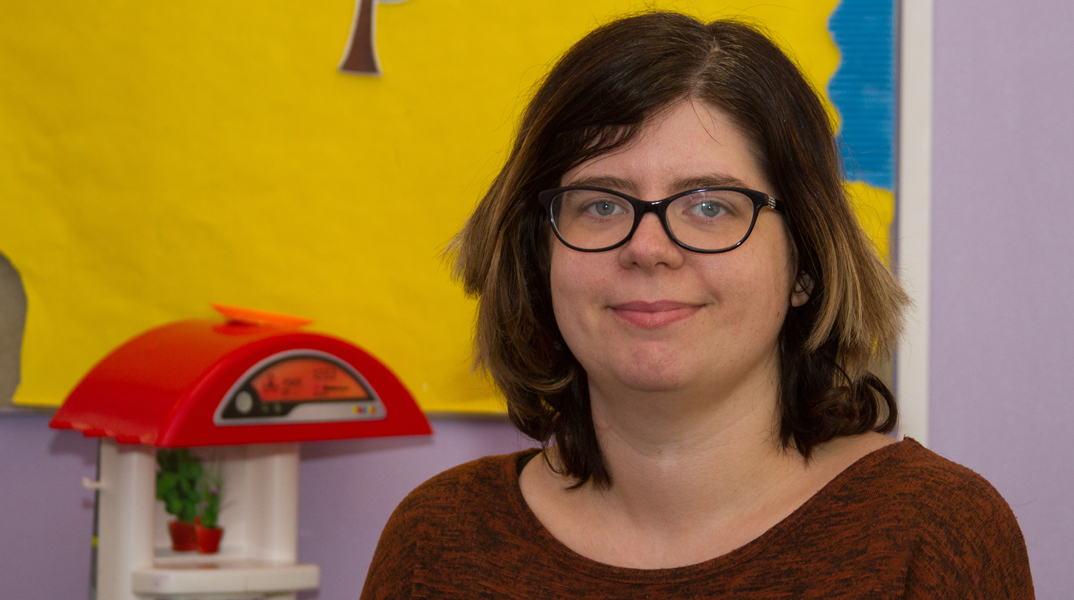
Childhood impact: Amanda Beaufoy, Coventry City Council Social Work South Neighbourhood Team
Helping families turn their lives around takes long-term commitment. Five years after winning Children's Social Worker of the Year, Amanda Beaufoy (BA English, 2000; MA Social Work, 2010) is still helping hundreds of families in the West Midlands, day in, day out, dealing with challenges from mental health issues to neglect.
'I did my first degree at Birmingham and became a journalist, but the more I found out about people's lives, the more I wanted to do something to help. So I came back to Birmingham to study social work.'
There are some key areas of deprivation within the West Midlands and it's there Amanda finds the most families needing help. On top of poverty at home, neglected children are often targeted by bullies at school. She adds: 'Worn-out clothes and free school meals are easy for classmates to spot. I can't take that family out of poverty, but I can work with parents to help them understand bullying, raise it effectively with the school and support their child both practically and emotionally.'
'The children I work with are often so young I wouldn't want to label them as having a mental health issue yet. Often their parents have grown up in similar circumstances and are facing anxiety or depression themselves, so my goal is to work with the whole family to create a safe happy home they can thrive in.'
With a high burnout rate and not enough people there for children in need, Amanda supports initiatives to bring more people into social work and give them the support the need to stay. 'It's not always easy but you learn to be strong. One of my first cases almost broke me. I went home crying, but when I woke up the next day I knew I needed to find the strength to keep helping families.' -
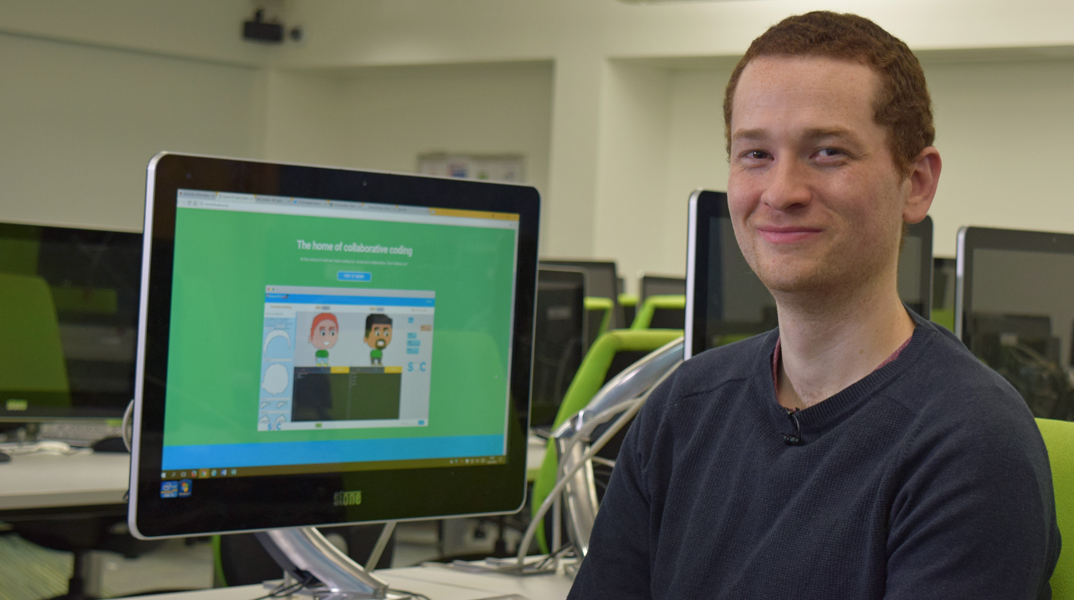
Technological impact: Dr Chris Meah, School of Code
Many of us work with and alongside machines and we will soon need to understand code to talk to them. Yet we haven't all had the chance to learn computing growing up.
Chris Meah (BSc Artificial Intelligence and Computer Science, 2011; PhD Physical Sciences of Imaging in the Biomedical Sciences, 2017) founded the School of Code during his PhD to ensure that no one is left behind as technology advances.
He says: 'I hadn't seen a line of code before I came to university, and I saw the massive advantages that coding knowledge can give you in the modern world. So I wanted to share the skills people will need for the future.
'Birmingham companies who urgently need more employees with coding skills sponsor our bootcamps, so we can offer the courses for free - this means we remove barriers to get more and different types of people into technology.'
The 16-week course takes new learners from zero to coding professional, then helps them into jobs. Chris adds: 'We have applicants from so many backgrounds, including a baker, a school leaver, a musician, a chemist and a stay-at-home mum. Now 60% of the class are already in coding jobs.'
Get your introduction to coding, and see how with a little knowledge you can see how some "fake news" is created, in our How to Code article.
Tell us the impact you have had on the West Midlands by emailing the alumni communications team.